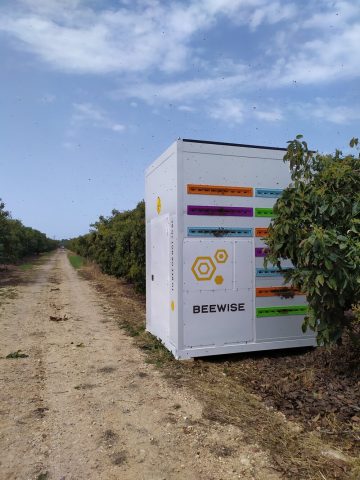🐝 🇮🇱 Beewise, an Israeli startup, raised $80M for its robotic beehives. These automated hives manage conditions, pest control, collect honey, and alert humans when their intervention is eventually needed.
Beewise is among a growing ecosystem of startups looking at the particular and nonetheless crucial issue of bee populations that have been declining dramatically over the past years.

🍄 🇺🇸 MycoTechnology, the US-based startup that uses mycelium and fermentation to create new plant-based ingredients for the food industry (enriched in proteins and with a better taste), raised $85M. By acting on both taste and nutrition, it may have some of the answers to the plant-based industry’s challenges right now (i.e., stalling sales).
📉 🇺🇸 Instacart, the much-hyped uber for groceries (you send a shopper to do the groceries for you inside stores in your neighborhood), has seen its valuation slashed by 40% (from $40B to $24B). More strangely, this news doesn’t come with new funding round but just as an independent valuation, and Instacart is not yet saying when it wants to plan its IPO.
🍚 🇺🇸 Yami, a US-based Asian marketplace, raised $50M. This space of Asian and, more broadly, ethnic marketplaces is growing at a crazy rate in the US and Europe. That’s definitely a space to look at for retailers.
🐜 🇫🇷 🇺🇸 Ynsect acquired Jord, a US-based mealworm producer, to boost its presence in North America.
🧫 🇫🇷 Core Biogenesis is a French startup that raised €2.6M to produce growth factors essential for stem cell multiplication, which is key for cellular agriculture and cell therapies.
This shows the potential of cellular agriculture (and precision fermentation in this case) to be a driver of technological change, not only in food but also in medicine. Indeed, by looking for solutions to produce growth factors at a much lower cost than what is currently provided to and by the pharma industry, startups are giving cellular agriculture the tools they need. Still, they may coincidentally also enable the large cell therapy biotech ecosystem to develop much more affordable treatments.
BEYOND FUNDING
🍽️ The pandemic has massively disrupted the business of caterers, and those relying on offices have to find ways to change their models. Here are two ways they are planning to do it:
- by using cloud kitchens to tap into small and medium-sized businesses. See in this article some examples of such use.
- by using robotics delivery and vending machines: here is an example of Sodexo’s new initiatives on US campuses
🥩 🤑 When we talk about plant-based foods and, more broadly, alternative proteins, one expression often comes: price parity. This refers to the moment when plant-based products will be priced the same as their “conventional meat” counterparts. We talk about it as some Holy Grail moment, where everything will be different thereafter… but we don’t really know how different. This study tries to give us some data about it. If plant-based meat products reached price parity, this study estimates it could skyrocket to 20% of the total meat market (from 3% today). Beyond remains the question of taste which is even more important for consumers.







